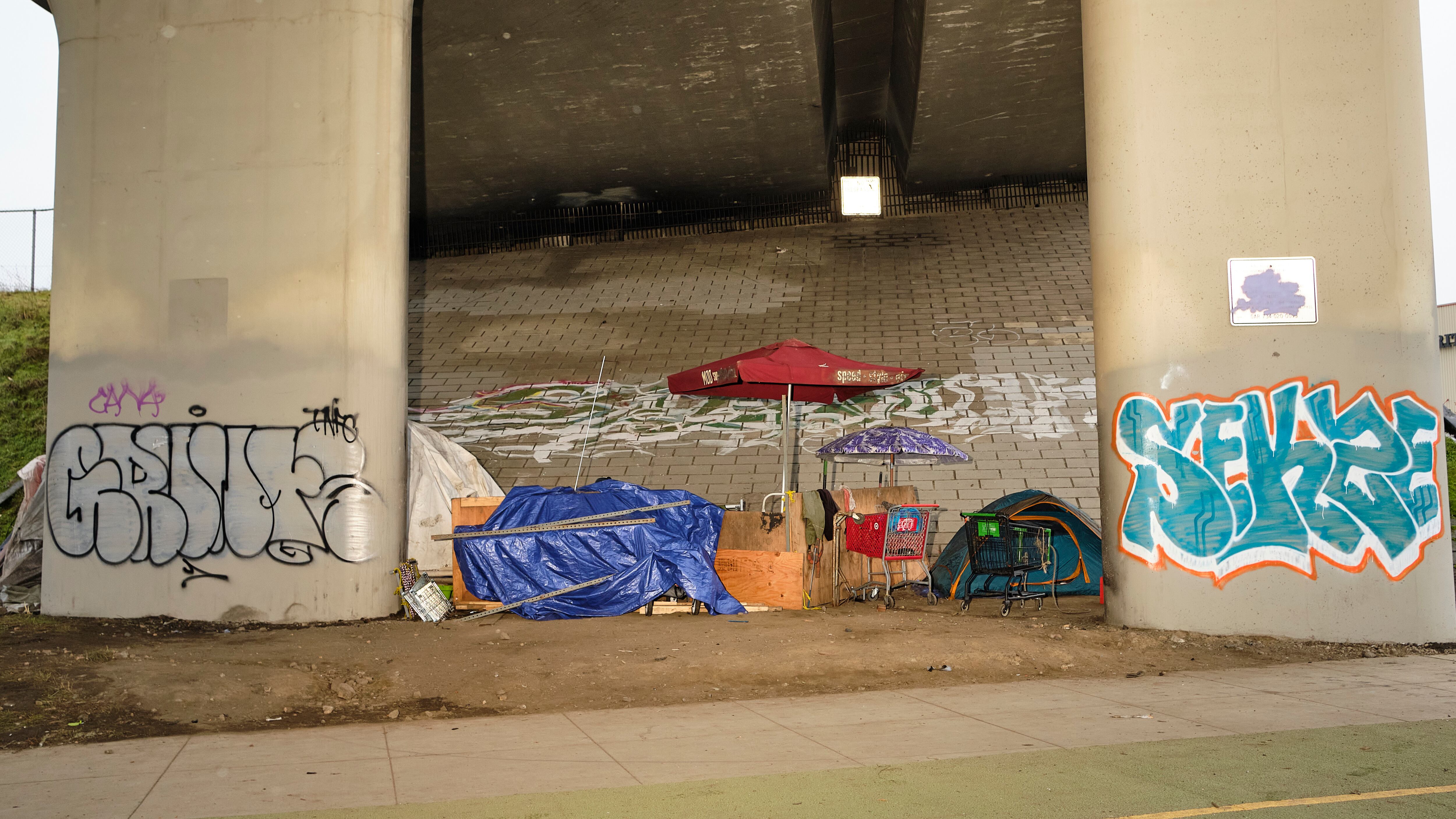The seven-member council at Metro, the Portland area’s regional government, agreed to delay a ballot measure aimed at extending its supportive housing services tax in order to build more support for it.
Metro had been pushing to get a measure on the May ballot, but support for it among advocates has been fragmenting in recent weeks, raising questions about its fate in the hands of voters, many of whom don’t see enough progress in the fight against homelessness, according to Metro’s polling.
Now, Metro is aiming for the November ballot.
“This is not an excuse to let off the pedal,” Council President Lynn Peterson said after colleagues indicated support for the delay.
The change comes a day after a group of homeless advocates, health care providers, and business groups wrote a letter to the council recommending that it delay going to voters. The Oregonian first reported that missive.
Without any action, the tax will sunset in 2030. Metro has been crafting a ballot measure that would extend the tax to 2050 but lower the rate levied on individuals from 1% to 0.75% over time.
The draft measure would index the tax to inflation. Currently, the tax is levied on marginal income above $125,000 for individuals or $200,000 for joint filers. Indexing it would raise those thresholds so that inflation alone doesn’t push people into brackets that trigger payment.
The draft would also allow counties and cities to use any cash that comes in beyond forecasts to build or buy low-income housing. As it stands now, SHS money can be used only for services.
Among the most contentious issues in the effort to extend the tax is accountability. At several meetings, Metro councilors have expressed dismay at the agency’s inability to gather granular data on how counties and cities spend SHS dollars. Metro and localities have been negotiating a data-sharing agreement for years, to no avail.
“We have tried for four years to establish a regional database of individuals and the complexity and array of their needs so that the counties and nonprofit providers can scale their operations to the people who need help,” Metro Councilor Mary Nolan said at today’s meeting. “If we can’t get that done before this is on the ballot in November, we will reinforce the public’s unfortunately growing belief that this government and our county partners can’t deliver.”
Among other requirements, Metro needs more data from the counties to ensure that 75% of the money is being used to help people with extremely low incomes and one or more disabling conditions, and who are experiencing, or at risk of, long-term homelessness.
“The voters directed us to focus on chronically homeless people,“ Nolan said. “We don’t even know who the chronically homeless are or what portion of the homeless population they represent, let alone what percent of revenues we are passing through the counties they’re spending on that population. That’s an unforgivable failure on our part.“
Peterson responded to those concerns by proposing a briefing on how close Metro and the counties are to a data-sharing agreement, which was required in an intergovernmental agreement the parties signed after voters passed the measure that created the SHS tax in 2020.
Councilor Christine Lewis warned that a briefing could slow down an already protracted process that has left Metro without data it needs.
“We have been driving reasonableness here, and from what I understand, it is an expectation about how long it is that we wait once we put together a report to actually release it,” Lewis said.
Counties have asked for a grace period between when they provide data to Metro and when it is released so they can weigh in on public reports, according to people familiar with the situation.
“Is it three days, is it 10 days, is it 12 days? I don’t really care,” Lewis said. “Any of the three counties can sign. They don’t have to wait for the other two.”
Multnomah County Chair Jessica Vega Pederson said she expects a data-sharing agreement to be signed “in the very near future.“
“We are committed to getting that agreement signed and have continued to come to the table with Metro and Clackamas and Washington counties since the beginning of the SHS program implementation,” Vega Pederson said in a statement to WW.
